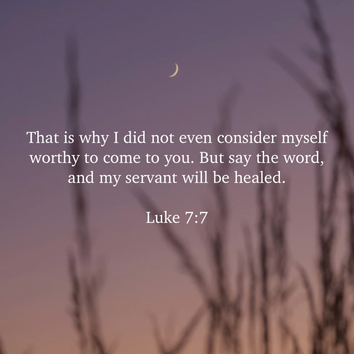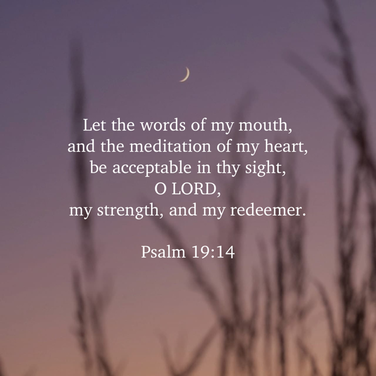|
Good morning! We're so glad you decided to join us today! When we meet together in person, we share our joys and concerns with each other before we focus on our Sunday school lesson. Right now think about your needs and all the things for which you are thankful. If you like, you can share them in the comments. This quarter we have been looking at scriptures that show how people have praised God or that call us to praise God. The psalms are probably the ultimate example of the latter. The lesson for today includes two psalms that call God’s people to praise. The following prayer was written by Jeffrey A. Nelson and posted on the Philosophy Over Coffee website. When we offer our praise, what don’t you already know? What haven’t you already heard? What poetry or prose would be new or impressive or exceptional to you? What music has not yet moved upward and outward into the vastness of your being? We praise from within white walls, polished oak, and stained glass; We praise alongside lakes, on beaches, through treetops and from grassy fields. We remind you of what you’ve done, are doing, and will do as if you aren’t already aware; we beautify our language— speaking of “worth” and offering flattery to the Source of Life as if it will gain us an extraordinary audience. These acts of naming sacred ground and of offering our best words are as much for us as it is for you. We struggle to describe what you are doing so that it makes more sense to us. We name your deeds and attributes so that we may even begin to understand your being and your doing. We have received breath, and by that same breath, we strive to understand its Giver. Transform our praise. Make it more than feeble attempts at divine manipulation or rote obligation. Spirit away ambitions that are selfish or self-aware. By what is nameless and indescribable, move us beyond words and notes to illuminating connection and inner renovation. It is in thanksgiving for your actions and in craving your continued presence that we praise. What we offer, you already know and have already heard. We seek your movement, and to move as you move. This week's lesson is on Psalm 149:1-5 and Psalm 150. Introduction and lesson context The unexpected beauty of Handel’s “Hallelujah Chorus” moved many in the crowd above to tears. Whether they knew it or not, they were hearing the repetition of “Praise the Lord!” It is an oft-repeated phrase in the psalms and a fitting conclusion to the book of Psalms. The Sunday school lesson for today features the last two psalms in the book, which call on God’s people to “Praise the Lord!” In Hebrew, the phrase is a combination of two words “hallelu” (meaning to praise) and a shortened form of the word for Yahweh, “jah”. Earlier lessons have reviewed the five divisions of “books” that some scholars see within the book of Psalms. They include Psalm 1-41, which focuses on the Davidic dynasty; Psalm 42-72, which focuses on the flourishing of that dynasty; Psalm 73-89, which focuses on the failure of the dynasty; Psalm 90-106, which focuses on the fact that God is ultimately the king and that God reigns; and Psalm 107-150, which celebrates the fact that, in that role, God will one day make all things right. I. A New Song A. A Call to Praise (verses 1-3) Both psalms in today’s lesson begin with the command to “Hallelujah!” “Praise the Lord!” They are imperative directed not to an individual but to an audience that includes the people of God, all people, and indeed all of creation. Psalm 149 continues with a call (again in the plural) to sing a new song. This suggests that the old songs are no longer sufficient, that something new must be created for the present situation. Scholars believe that these songs were written after the return from the Babylonian captivity. This was something of a “second exodus.” The songs that recall that time, such as the one we talked about in Lesson 1, are wonderful, but these new circumstances call for songs of their own. Question: What are some ways to help our fellow Christians embrace new songs of worship when they always want to sing old favorites? What risks do we run by not trying? Perhaps a new song is called for because of what God is doing in your life. Songs that follow the biblical model not only praise God, but they also offer reasons for that praise. I spoke with a church musician recently who decried many of the modern “praise songs and choruses,” which only repeat phrases over and over. She said that many such songs are meant to cause emotional reactions within people that can actually release chemicals and become much like an addiction. By contrast, scriptural songs of praise provide a context that offers reasons and ways to praise God. Therefore, they appeal not just on an emotional level, but also on an intellectual level, keeping us “grounded.” The psalmist calls for the people of God to praise God in their assembly. The next two lines of the psalm are really a repetition of the same thought, that the people should rejoice and be glad in worship. The Hebrew language does not have exclamation marks; therefore, ideas are often repeated for emphasis with a technique called parallelism. “Israel” and “the people of Zion” are equivalent, as are “the calls to “rejoice” and “be glad.” The two lines also give the reason for praising God. First, because God is their creator, and second because God is their ruler, their king. Not only is God the creator of humanity and of all things, but God is the creator of the nation. And although the monarchy is over, God still reigns. Having said why the people should praise God, the psalmist moves on to say how they should praise God. This includes dancing and playing instruments such as the timbrel (tambourine) and the harp. Many worship traditions today include times for sacred dance, and a bodily expression of praise can be a beautiful and expressive way that some people can use their gifts to express give God praise. B. Reasons for praise (verses 4 and 5) If as supposed, the psalm was composed after the exile from Babylon, the people would be enduring a difficult time in their history. Still, the psalmist calls for praise because it delights God and because, when humble people praise God, God rewards them with victory. The word for “humble” is the same word that is translated elsewhere as “afflicted.” Therefore, the psalmist could be referring to the physical destitution of the people or to their humbleness of spirit, or possibly both. The final verse of our passage is a summons for the people to rejoice “in this honor,” a phrase that the Sunday school author says means to have been “favored with a change in circumstance.” Although their lives were hard, at least God allowed them to return to their homeland. The verse concludes with a call to “sing for joy on their beds.” Not only are the people to praise God in the assembly but also in the privacy of their homes. II. The Setting of Praise (Psalm 150) A. Where to praise (verse 1) Moving from Psalm 149’s imperative to sing to God in our homes, Psalm 150 returns to the sanctuary, where it is especially appropriate to praise God. Sanctuary is a word that appears in Hebrew more than 500 times in the Bible with many different meanings. Although it has the connotation of sacredness or separateness, here it likely refers to the sacred worship space. The psalm then moves to call for the heavens to praise God. This is not just the sky but the realm of God, where divine beings spend their time in constant praise of God. (See for example Isaiah 6.) B. Why to praise (verse 2) This verse tells us we should praise God for God’s actions on our behalf and for God’s character. Just as Israel could recount the many times God had delivered the people and guided them, we also can recall times in our lives and in the life of our church when God has provided for us and brought us through dire circumstances. But it is not just because of what God has done for us that we praise God. It is also because of how those actions flow from a constant, dependable character of love, compassion, forgiveness, and grace. God is our constant in an ever-changing and sometimes harsh world, and for that we can and should offer praise. C. How to praise (verses 3-5) This section of the psalm offers examples of the instruments that might be used to praise God in worship. They include trumpets, which were used as a call to worship, as a danger warning, as an expression of joyful celebration, as a summons to hear good news, as a signal of the installation of a new king, and simply as a call to assemble. The harp and lyre are two-stringed instruments that are almost identical except for their difference in size. The timbrel, as mentioned above, was much like a tambourine, and the psalmist again calls for the use of dance as an activity of praise. In addition to stringed instruments, the psalmist calls for pipes, probably an early type of wind instrument, to praise God. The final instrument named is the cymbals, a percussion instrument that would have added volume to the sound. In all, the two psalms include at least 14 instruments. When all these instruments were employed in worship, imagine the tumult and joy that was being expressed. For the ancient people of Israel, there was no holding back in worship! D. Who to praise (verse 6) The people’s worship is just the appropriate human response of joy and praise to a God who protects and cares for us and for all of creation. The psalm concludes with a call for everything that has breath, everything alive, to join in the cacophony of praise. Conclusion When life becomes turbulent, it is easy to forget the Lord’s might and character. That happens when we drop our gaze from him to focus on the problems themselves and non-biblical solutions to them. But when we return from that “exile” we realize our foolishness. In the process, we find new opportunities to sing for joy to the Lord, realizing that our old songs are inadequate in light of the Lord’s new blessings. No matter our situation, we should praise the Lord. We can do so by recalling past blessings — the great things God has done. We can praise God for future blessings — the things God has promised when we are in God’s presence for all eternity. If celebrating the Lord’s greatness will not give us joy and peace during the storms of life, what will? Prayer O Lord, our God, you are great, and you are good. In all circumstances, may we ever praise you for your care for us. In Jesus’ name we pray. Amen. Benediction For this last week of October, we will continue to use the Psalter for our benediction. Next week's lesson will be on Revelation 7:9-17.
0 Comments
Leave a Reply. |
AuthorWe are a small, rural Presbyterian church in southwestern Pennsylvania. Archives
July 2024
Categories
All
|



 RSS Feed
RSS Feed